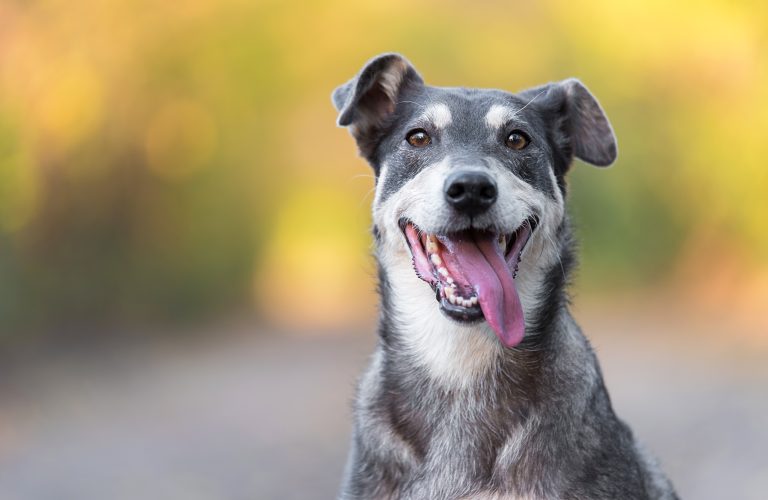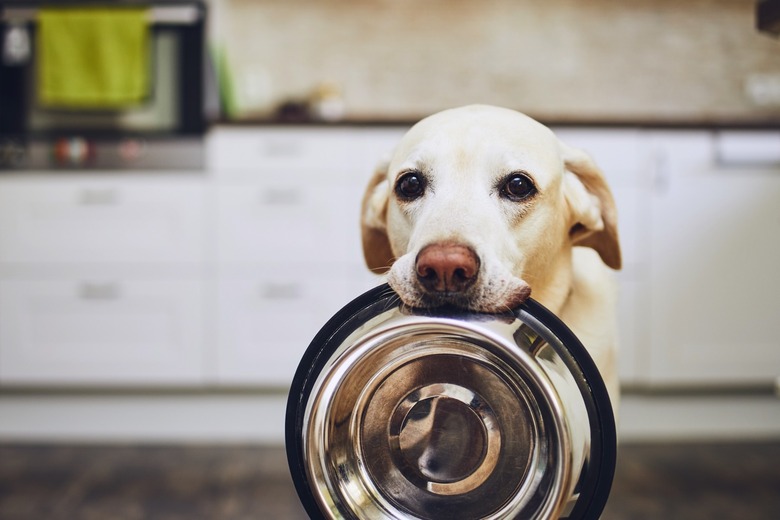If You Have Dog Treats From This Recall, Stop Feeding Them To Your Pet Immediately
People can get infected with Salmonella without eating contaminated food. All it takes is handling tainted products that contain traces of the bacteria for a person to develop symptoms. That's precisely what happened with three dog owners in Massachusetts who fed Dog Gone Dog Treats to their pets. As a result, the Massachusetts Department of Public Health (DPH) issued a recall for the dog food. The agency urges people to dispose of all Dog Gone Dog Treats immediately.
Dog Gone Dog Treats recall

The DPH explains in a press release that the three salmonellosis cases include two adults in their 70s and a child. They're all residents of Essex County who have handled the Dog Gone Dog Treats that are now part of the recall.
The agency further explains that one open bag from a customer and several unopened packages people purchased last week tested positive for Salmonella at the State Public Health Laboratory. The Dog Gone Dog Treats in this recall come from Georgetown and include "chicken chips" as well as beef liver and sweet potato chips. The products are dehydrated and not fully cooked.
They're available at Essex County Co-Op in Topsfield, New England Dog Biscuit Company in Salem, Gimme Chews & Moore in Haverhill, and Animal Krackers in Gloucester.
The DPH instructed all stores to remove the products from their shelves. Furthermore, the manufacturer isn't producing any additional treats for the time being.
Salmonella symptoms
People can develop salmonellosis after eating or handling food that contains the Salmonella bacteria. That's what led to the Dog Gone Dog Treats recall. Pet owners touched the contaminated treats before developing signs of an infection.
Salmonellosis symptoms can include diarrhea, fever, and stomach cramps. They can last up to a week, but treatment isn't always necessary. Severe illness is uncommon, the DPH says.
But people with weakened immune systems, very young children, adults over 65, and those who develop more severe symptoms should contact their doctors to discuss courses of treatment.
As for dogs that eat contaminated food, they can also get sick. Symptoms can include diarrhea that may contain blood or mucus. They might seem more tired than usual and develop a fever or start vomiting. Dogs can also have a Salmonella infection without appearing sick.
What you should do
If you own the Dog Gone Dog Treats products in the recall, you should stop feeding them to your dog immediately. Dispose of the existing supply in your home right away and wash your hands thoroughly after handling the treats.
The DPH advises pet owners who develop symptoms after contact with dog food to consult with their healthcare providers. Furthermore, dog owners concerned about their pets should consult veterinarians.
Finally, the DPH provides the following instructions to help you prevent a Salmonella infection from pet foods like the Dog Gone Dog Treats in this recall. Here's what you should do, according to the announcement:
Wash your hands for at least 20 seconds with soap and water right after handling pet food or treats or having contact with animal feces (stool), especially before preparing, serving, or eating foods or drinks, or before preparing baby bottles.
Store pet food and treats away from where human food is stored or prepared, and away from young children.
Children under 5 should not touch or eat pet food or treats.
Clean and disinfect surfaces that the pet treats may have touched. Salmonella can survive several weeks in dry environments.
Don't let your dog lick your mouth and face after eating. If you do, wash your hands and any other parts of your body they may have licked with soap and water.
The CDC does not recommend feeding raw diets to pets as they have been found to contain germs, including Salmonella, that can make pets and humans sick.
